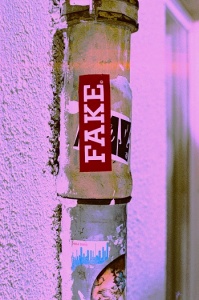
Photo by Markus Spiske on Unsplash
Second “artificial crisis” – in as many manuscripts being read. Already in the middle of a major crisis, the author adds an artificial mystery or tear-jerking addition that adds NOTHING to the plot. Ugh.
Artificial crisis are things like a “mystery”, where the character knows what is happening but isn’t sharing it with the reader. Folks, a fake-mystery isn’t even an unreliable narrator but an obstructionist narrator. If the story’s narrator story isn’t sharing the story with the reader, why is the reader going to bother reading the book?
A tear-jerk addition is like when the puppy gets sick … and while at the vet, the main character doesn’t answer the phone and the romantic interest thinks they no longer care and doesn’t met them. Now, it can be a great story when the puppy gets sick … but if the main plot is a ticking clock of the criminals about to transfer dozen of illegal immigrant (domestic slavery), an artificial crisis is unnecessary, especially one that takes away from the present emotional investment.
Subplot, yes, all day long. But do not destroy the emotional ride of the main story. Crisis should impact the story and complement it, not distract from it.
Make any crisis natural to the story. Torture your characters. BUT!!! the crisis should never feel like “the author needed to create tension at this story beat according to the format they are following so they stuck this conflict in.”
No, no, no.